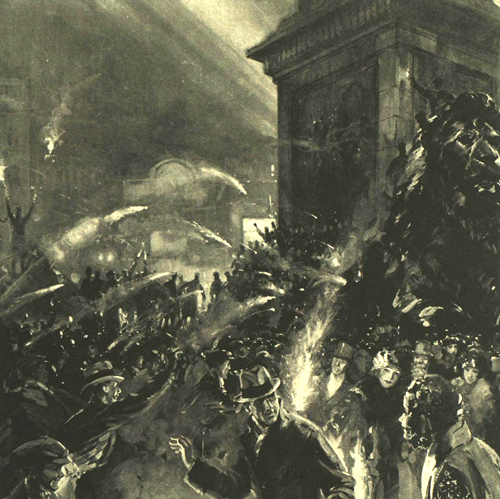Conservatives returned to government as nationalists secure victory in Fermanagh/Tyrone
London, 20 November 1922 – The UK general election has resulted in the return of the recently-established Conservative administration led by Andrew Bonar Law.
The other significant story arising from the election is the emergence of Labour as the second largest party in the Westminster parliament, their advance coming mainly at the expense of David Lloyd George’s National Liberals and Herbert Asquith’s Liberals.
Among the high profile political casualties of this election were: Winston Churchill in Dundee; Sir Hamar Greenwood, the last Chief Secretary for Ireland, in Sunderland; and Labour’s Arthur Henderson in Widnes.
In Northern Ireland, only two of 10 constituencies saw a contest. In Londonderry, the Unionist candidate Sir Malcolm Mcnaghten took the seat, comfortably defeating his cousin and Independent Nationalist rival, Edmund Macnaghten.
However, in the new two-seat constituency of Fermanagh/Tyrone, it was the two nationalist candidates who triumphed, with Thomas Harbison narrowly topping the poll ahead of Cahir Healy.
The result came as a surprise to unionists, who felt that they might have secured one of the two seats, nationalists reacted by claiming that their margin of victory had actually been lowered by the inability of those ‘on the run’ or in prison to cast their vote. The Belfast Newsletter also claims that a small number of nationalists had deliberately stayed away from the polls in sympathy with Éamon de Valera's manifesto calling for the boycott of the election.
British Pathé newsreel footage of 1922 election night in the West End
The outcome in Fermanagh/Tyrone is already being presented as a vote for Irish unity and for the right of voters to choose a future within the Irish Free State. ‘Who can now dream of denying’, the Irish News has asked, ‘that the flood-tide of opinion in Fermanagh and Tyrone runs directly against the partition of Ireland?’
However, readers of the Northern Whig have been informed that the electorate of Fermanagh and Tyrone do not have any say on the jurisdiction in which they will reside. ‘No mere counting of heads can have any appreciable effect upon this issue’, they have been told. That’s because the final call on the constituency’s future rests not with any local majority. Rather it is to the ‘whole people of a province that is ‘one and indivisible’.’
[Editor's note: This is an article from Century Ireland, a fortnightly online newspaper, written from the perspective of a journalist 100 years ago, based on news reports of the time.]





















